Explore the importance, history, and impact of the Dallas time zone. Understand how to adapt and manage time zone differences for business and travel.Are you traveling to Dallas or doing business with people in Dallas? Understanding the time zone of this bustling city is essential for effective communication and time management. In this blog post, we will delve into the concept of time zones, the importance of the Dallas time zone, its history, and how it differs from Coordinated Universal Time (UTC). We will also explore the impact of daylight saving time on the Dallas time zone, its implications for businesses, and travel considerations. Additionally, we will provide valuable tips for managing time zone differences to help you make the most of your time in Dallas. Whether you’re a frequent traveler, a business professional, or simply curious about how time works in Dallas, this post will equip you with the knowledge needed to adapt and thrive in the Dallas time zone.
What is a time zone?
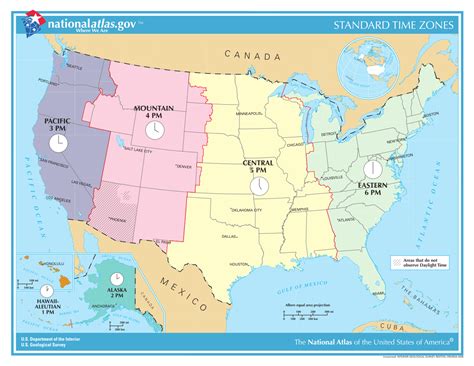
A time zone is a region of the globe that observes a uniform standard time for legal, commercial, and social purposes. It is a concept that was developed to regulate and standardize timekeeping across the world. This is necessary because the Earth is divided into different longitudes and rotates at a speed of about 1670 kilometers per hour, causing variations in the time of day at different locations. Time zones help to establish a consistent method for reckoning time across the planet, despite the Earth’s rotation.
Each time zone is generally centered on a specific meridian of longitude and extends for 15 degrees on either side. This means that there are 24 time zones in total, each representing one hour of time. The starting point for these time zones is the Prime Meridian in Greenwich, London, which is known as Coordinated Universal Time (UTC).
In addition to the standard time zones, there are also Daylight Saving Time zones, which adjust the official local time forward in the spring and backward in the fall. This is done in order to make better use of daylight and to save energy. Not all countries and regions observe Daylight Saving Time, and it is a practice that is often subject to debate and controversy.
Understanding the concept of time zones is crucial for global communication, travel, and business operations. It allows for coordination and synchronization of activities across different parts of the world, preventing confusion and ensuring efficiency in various aspects of life. Time zones play a fundamental role in the modern interconnected world, shaping the way we organize our daily lives and interact with others on a global scale.
Understanding the concept of time zones
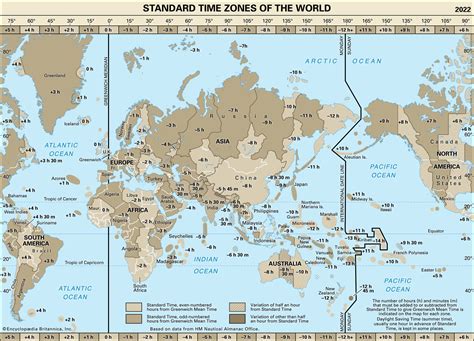
The concept of time zones refers to the division of the Earth’s surface into 24 different regions, each of which follows a standard time to maintain consistency in timekeeping across the globe. The primary purpose of time zones is to account for the variation in the position of the sun at different longitudes, ensuring that activities and events happen at appropriate times.
Each time zone is typically 15 degrees of longitude wide, with the Prime Meridian, located in Greenwich, England, serving as the reference point for the standard time, known as Coordinated Universal Time (UTC). As one moves east or west from the Prime Meridian, the time subtracts or adds, respectively, by one hour for every 15-degree shift in longitude.
Moreover, the concept of time zones also encompasses the use of Daylight Saving Time (DST) in certain regions during specific periods of the year, wherein the clocks are adjusted forward by one hour to extend daylight into the evening hours. This practice aims to make better use of natural daylight and reduce energy consumption.
Understanding the concept of time zones is essential for various everyday activities, including international travel, scheduling business meetings across different regions, and ensuring smooth communication and coordination on a global scale. In the modern world, where global connections are more prevalent than ever, grasping the intricacies of time zones is crucial for effective time management and coordination.
Importance of time zone in Dallas
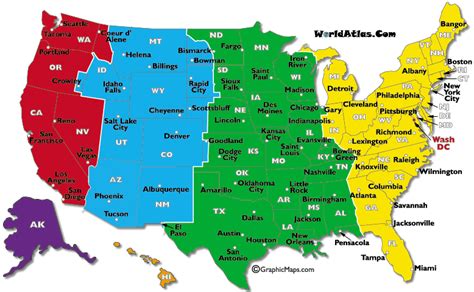
Understanding the importance of time zones in Dallas is crucial for various aspects of daily life, such as scheduling, communication, and international business operations.
For instance, the Dallas time zone, Central Standard Time (CST), affects the coordination of meetings and events with individuals across different time zones. It determines the opening and closing hours of businesses, as well as the timing of public transportation services. Additionally, the Dallas time zone plays a significant role in the city’s economic activity, particularly in the area of trade and commerce.
Moreover, the Dallas time zone’s relevance extends to its impact on tourism and travel. Visitors and tourists navigating through different time zones must adjust their schedules and activities accordingly to adapt to the local time zone. This emphasizes the significance of understanding and accommodating the Dallas time zone when planning and executing travel plans.
Considering the importance of the Dallas time zone, individuals and businesses in the region must be mindful of the time differentials and be proactive in managing time-related matters to ensure efficient and productive operations. With the widespread connectivity and global interactions in today’s world, the significance of time zones, including the Dallas time zone, cannot be overlooked.
History of Dallas time zone
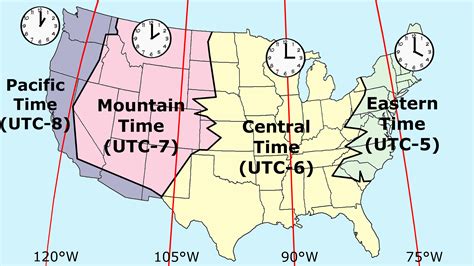
The history of the Dallas time zone dates back to the late 19th century when the concept of standard time was first introduced. Prior to the establishment of time zones, each city and town had its own local mean time based on the position of the sun. This lack of standardization created chaos for the growing railway network and other forms of transportation, leading to the adoption of a standardized time system. The Dallas time zone, also known as Central Standard Time (CST), was established as one of the original time zones in the United States by the American Railway Association in 1883.
Before the implementation of standard time, communities relied on local solar time, which varied widely from one location to another. This made it difficult to coordinate activities and schedules across different regions, especially as the country expanded and intercity travel became more common. The adoption of time zones, including the Dallas time zone, helped to synchronize timekeeping and improve efficiency in various industries, including transportation, communication, and commerce.
The concept of time zones and the establishment of the Dallas time zone marked a significant milestone in the history of timekeeping. It not only revolutionized the way people across the country and the world measured time, but also paved the way for the global standardization of time zones. Today, the Dallas time zone continues to play a crucial role in coordinating activities and facilitating communication and commerce within the Central Standard Time region.
In conclusion, the history of the Dallas time zone reflects the evolution of timekeeping and the efforts to create a standardized system of measuring time. From the days of local solar time to the establishment of time zones, including the Dallas time zone, the history of timekeeping has been shaped by the need for coordination and efficiency in an increasingly interconnected world.
Difference between Dallas time zone and UTC
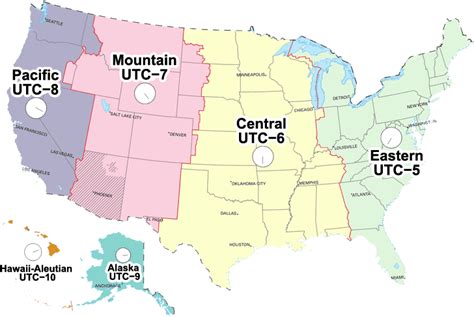
The Dallas time zone is Central Standard Time (CST), which is 6 hours behind Coordinated Universal Time (UTC-6). This means that when it is 12:00 PM in Dallas, it is 6:00 PM in UTC. The concept of time zones is important for coordinating activities across different regions around the world, and understanding the difference between Dallas time zone and UTC is crucial for scheduling meetings and events, especially for international business.
In contrast, UTC stands for Coordinated Universal Time, which serves as the primary time standard by which the world regulates clocks and time. UTC does not observe daylight saving time, whereas the Dallas time zone CST does. This means that during daylight saving time, the difference between Dallas time zone and UTC may change to UTC-5.
When planning travel or business engagements that involve participants in different time zones, it is important to take into account the variance between Dallas time zone and UTC to avoid any scheduling conflicts. Depending on the time of year and the observance of daylight saving time, the difference in time between Dallas and UTC may need to be adjusted.
- Summary of Dallas time zone and UTC difference:
| Dallas time zone | UTC |
| Central Standard Time (CST) | Coordinated Universal Time (UTC) |
| UTC-6 | UTC |
| May observe daylight saving time (UTC-5 during DST) | Does not observe daylight saving time |
Understanding the difference between Dallas time zone and UTC is essential for anyone involved in international business, travel, or communication with individuals in different parts of the world. By being aware of the time discrepancies and adjustments that may need to be made, effective coordination and scheduling can be achieved for productive and successful interactions across time zones.
Adapting to the Dallas time zone
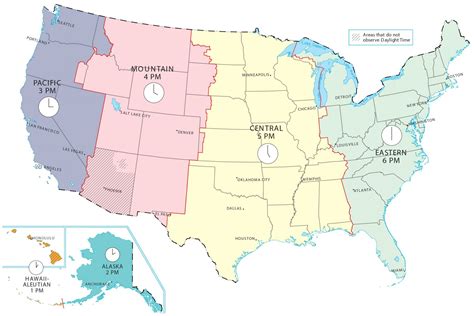
Adapting to the Dallas time zone can be a challenge, especially for those who are traveling from far away. It’s important to understand the concept of time zones and how they affect our daily lives. When visiting Dallas, it’s crucial to adjust your schedule and activities according to the local time, to avoid any inconvenience.
One way to adapt to the Dallas time zone is to gradually adjust your sleep schedule before your trip. This can help your body acclimate to the time difference and reduce the chances of jet lag. It’s also helpful to expose yourself to natural sunlight during the day and avoid using electronic devices before bedtime, as this can disrupt your sleep patterns.
When visiting Dallas for business or leisure, it’s important to be mindful of the local time when scheduling meetings, appointments, or activities. It’s also essential to stay hydrated and well-rested to minimize the effects of jet lag. Additionally, incorporating light exercise into your daily routine can help regulate your body’s internal clock and aid in adapting to the new time zone.
Traveling across time zones can have an impact on your overall well-being, so it’s crucial to plan ahead and make the necessary adjustments to avoid any disruption to your daily routine. By understanding the time zone differences and taking proactive steps to adapt, you can make the most of your time in Dallas and enjoy a seamless travel experience.
Impact of daylight saving time in Dallas
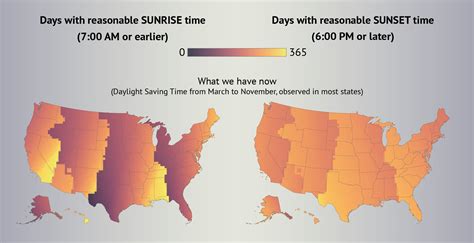
Daylight saving time in Dallas has a significant impact on the daily lives of its residents. During daylight saving time, the clocks are set ahead by one hour, resulting in an extra hour of daylight in the evenings. This change affects various aspects of life, including energy consumption, work schedules, and recreational activities.
One of the main benefits of daylight saving time is the potential reduction in energy usage. By extending daylight hours into the evening, people are less reliant on artificial lighting and heating, leading to lower electricity consumption. This can have a positive impact on the environment and reduce the strain on energy resources.
However, the transition to daylight saving time can also have negative effects on individuals. The disruption to sleep patterns and the sudden shift in daylight hours can lead to feelings of fatigue and sluggishness. It can take time for people to adjust to the new schedule, impacting their productivity and overall well-being.
From a business standpoint, the implementation of daylight saving time can influence operations and customer behavior. Companies may need to adjust their opening hours and employee schedules to accommodate the time change. In addition, consumer behavior and spending patterns may shift as people take advantage of the extended daylight to engage in outdoor activities and leisure pursuits.
In summary, the impact of daylight saving time in Dallas extends beyond simply changing the clocks. It affects energy consumption, sleep patterns, business operations, and daily routines. Understanding these implications can help individuals and organizations prepare for and adapt to the time change effectively.
Business implications of Dallas time zone

Understanding the Dallas time zone is crucial for businesses operating in the region, as it directly impacts their operations and interactions with other global businesses. The time zone in Dallas is Central Standard Time (CST), which is 6 hours behind Coordinated Universal Time (UTC-6).
For businesses conducting international operations, the time zone difference between Dallas and other regions can create challenges in scheduling meetings and coordinating business activities. It is important for companies to be aware of the time zone disparities and plan their communication and operations accordingly to ensure optimal efficiency and productivity.
Additionally, the Dallas time zone can impact customer service and support functions, as businesses need to be mindful of the local time when providing assistance to customers in different regions. Understanding the implications of the time zone is crucial for ensuring seamless business operations and maintaining strong customer relationships.
Furthermore, the Dallas time zone can also influence the timing of global financial transactions and stock market activities, requiring businesses to align their trading and investment activities with the local time in Dallas to capitalize on market opportunities and mitigate risks associated with time zone differences.
Travel considerations in Dallas time zone

When traveling to Dallas, it’s important to be aware of the time zone differences to avoid any potential disruptions to your schedule. Dallas falls within the Central Time Zone (CT), which is 6 hours behind Coordinated Universal Time (UTC-6). This means that if you are traveling from a location in a different time zone, you will need to adjust your plans accordingly to ensure that you arrive at your destination on time.
One of the key considerations when traveling to the Dallas time zone is the impact it may have on your daily activities. Whether you are flying in for business or pleasure, it’s essential to plan ahead and factor in the time difference to avoid any potential conflicts. For example, if you have an important meeting or event scheduled shortly after your arrival, it’s crucial to account for the time zone change and adjust your plans accordingly.
Additionally, when planning your travel itinerary, it’s important to consider the potential effects of jet lag due to the time zone change. Jet lag can impact your energy levels and sleep patterns, so it’s essential to allow yourself time to acclimate to the new time zone upon arrival in Dallas. This may involve scheduling downtime to rest and recover from any potential fatigue associated with the time difference.
Furthermore, if you are traveling with a group or as part of a team, it’s important to communicate the implications of the Dallas time zone to ensure that everyone is on the same page. This may involve coordinating schedules, adjusting meeting times, and considering the impact of the time difference on daily activities to ensure a smooth and seamless travel experience.
Tips for managing time zone differences

Managing time zone differences can be a challenging task, especially when it comes to coordinating meetings or conference calls with individuals located in different parts of the world. However, with the right strategies and tools, it is possible to effectively manage these differences and ensure smooth communication and collaboration across time zones.
One important tip for managing time zone differences is to be organized and aware of the time zones of all parties involved. It is essential to keep a detailed schedule that clearly outlines the time zones of each participant and the corresponding local times for meetings or deadlines.
Another helpful tip is to utilize technology to aid in managing time zone differences. There are various software and online tools available that can assist in coordinating across time zones, such as world clock applications, scheduling apps, and time zone converters. These tools can help streamline the process and minimize errors when working across different time zones.
In addition, it is important to establish clear communication and expectations when working with individuals in different time zones. This includes setting designated meeting times that are convenient for all parties, as well as being proactive in communicating any changes or updates related to time zone differences.
Lastly, flexibility is key when managing time zone differences. It is crucial to be flexible and accommodating when scheduling meetings or accommodating deadlines, taking into consideration the time zone constraints of all participants involved. Being adaptable and understanding of different time zones can help foster better communication and collaboration with individuals across the globe.
Frequently Asked Questions

What is the time zone of Dallas?
Central Standard Time (CST)
Does Dallas observe Daylight Saving Time?
Yes, it switches to Central Daylight Time (CDT) in the summer.
Is Dallas in the same time zone as Chicago?
Yes, both Dallas and Chicago are in the Central Time Zone.
What is the time difference between Dallas and New York?
Dallas is 1 hour behind New York.
Does Dallas observe any other time changes besides Daylight Saving Time?
No, it only switches between CST and CDT for Daylight Saving Time.
What are the major cities in the same time zone as Dallas?
Houston, San Antonio, and Austin are also in the Central Time Zone.
What is the UTC offset for Dallas time zone?
The UTC offset for Dallas is UTC-6 during standard time and UTC-5 during daylight saving time.

